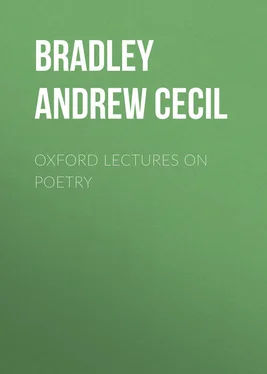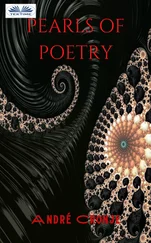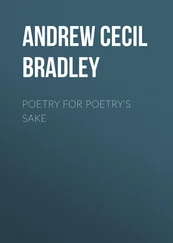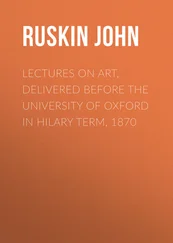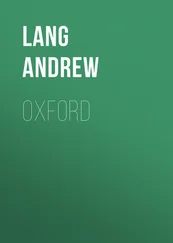Andrew Bradley - Oxford Lectures on Poetry
Здесь есть возможность читать онлайн «Andrew Bradley - Oxford Lectures on Poetry» — ознакомительный отрывок электронной книги совершенно бесплатно, а после прочтения отрывка купить полную версию. В некоторых случаях можно слушать аудио, скачать через торрент в формате fb2 и присутствует краткое содержание. ISBN: , Жанр: foreign_antique, foreign_prose, foreign_poetry, на английском языке. Описание произведения, (предисловие) а так же отзывы посетителей доступны на портале библиотеки ЛибКат.
- Название:Oxford Lectures on Poetry
- Автор:
- Жанр:
- Год:неизвестен
- ISBN:http://www.gutenberg.org/ebooks/36773
- Рейтинг книги:4 / 5. Голосов: 1
-
Избранное:Добавить в избранное
- Отзывы:
-
Ваша оценка:
- 80
- 1
- 2
- 3
- 4
- 5
Oxford Lectures on Poetry: краткое содержание, описание и аннотация
Предлагаем к чтению аннотацию, описание, краткое содержание или предисловие (зависит от того, что написал сам автор книги «Oxford Lectures on Poetry»). Если вы не нашли необходимую информацию о книге — напишите в комментариях, мы постараемся отыскать её.
Oxford Lectures on Poetry — читать онлайн ознакомительный отрывок
Ниже представлен текст книги, разбитый по страницам. Система сохранения места последней прочитанной страницы, позволяет с удобством читать онлайн бесплатно книгу «Oxford Lectures on Poetry», без необходимости каждый раз заново искать на чём Вы остановились. Поставьте закладку, и сможете в любой момент перейти на страницу, на которой закончили чтение.
Интервал:
Закладка:
Of course, I should add, it is not merely beyond them or outside of them. If it were, they (the poem) could not ‘suggest’ it. They are a partial manifestation of it, and point beyond themselves to it, both because they are a manifestation and because this is partial.
The same thing is true, not only (as is remarked in the text) of the other arts and of religion and philosophy, but also of what is commonly called reality. This reality is a manifestation of a different order from poetry, and in certain important respects a much more imperfect manifestation. Hence, as was pointed out (pp. 6, 7, note B), poetry is not a copy of it, but in dealing with it idealises it, and in doing so produces in certain respects a fuller manifestation. On the other hand, that imperfect ‘reality’ has for us a character in which poetry is deficient, – the character in virtue of which we call it ‘reality.’ It is, we feel, thrust upon us, not made by us or by any other man. And in this respect it seems more akin than poetry to that ‘beyond,’ or absolute, or perfection, which we want, which partially expresses itself in both, and which could not be perfection and could not satisfy us if it were not real (though it cannot be real in the same sense as that imperfect ‘reality’). This seems the ultimate ground of the requirement that poetry, though no copy of ‘reality,’ should not be mere ‘fancy,’ but should refer to, and interpret, that ‘reality.’ For that reality, however imperfectly it reveals perfection, is at least no mere fancy. (Not that the merest fancy can fail to reveal something of perfection.)
The lines quoted on p. 26 are from a fragment of Shelley’s beginning ‘Is it that in some brighter sphere.’
THE SUBLIME 14 14 I have learned something from many discussions of this subject. In its outline the view I have taken is perhaps nearer to Hartmann’s than to any other.
Coleridge used to tell a story about his visit to the Falls of Clyde; but he told it with such variations that the details are uncertain, and without regard to truth I shall change it to the shape that suits my purpose best. After gazing at the Falls for some time, he began to consider what adjective would answer most precisely to the impression he had received; and he came to the conclusion that the proper word was ‘sublime.’ Two other tourists arrived, and, standing by him, looked in silence at the spectacle. Then, to Coleridge’s high satisfaction, the gentleman exclaimed, ‘It is sublime.’ To which the lady responded, ‘Yes, it is the prettiest thing I ever saw.’
This poor lady’s incapacity (for I assume that Coleridge and her husband were in the right) is ludicrous, but it is also a little painful. Sublimity and prettiness are qualities separated by so great a distance that our sudden attempt to unite them has a comically incongruous effect. At the same time the first of these qualities is so exalted that the exhibition of entire inability to perceive it is distressing. Astonishment, rapture, awe, even self-abasement, are among the emotions evoked by sublimity. Many would be inclined to pronounce it the very highest of all the forms assumed by beauty, whether in nature or in works of imagination.
I propose to make some remarks on this quality, and even to attempt some sort of answer to the question what sublimity is. I say ‘some sort of answer,’ because the question is large and difficult, and I can deal with it only in outline and by drawing artificial limits round it and refusing to discuss certain presuppositions on which the answer rests. What I mean by these last words will be evident if I begin by referring to a term which will often recur in this lecture – the term ‘beauty.’
When we call sublimity a form of beauty, as I did just now, the word ‘beauty’ is obviously being used in the widest sense. It is the sense which the word bears when we distinguish beauty from goodness and from truth, or when ‘beautiful’ is taken to signify anything and everything that gives aesthetic satisfaction, or when ‘Aesthetics’ and ‘Philosophy of the Beautiful’ are used as equivalent expressions. Of beauty, thus understood, sublimity is one particular kind among a number of others, for instance prettiness. But ‘beauty’ and ‘beautiful’ have also another meaning, narrower and more specific, as when we say that a thing is pretty but not beautiful, or that it is beautiful but not sublime. The beauty we have in view here is evidently not the same as beauty in the wider sense; it is only, like sublimity or prettiness, a particular kind or mode of that beauty. This ambiguity of the words ‘beauty’ and ‘beautiful’ is a great inconvenience, and especially so in a lecture, where it forces us to add some qualification to the words whenever they occur: but it cannot be helped. (Now that the lecture is printed I am able to avoid these qualifications by printing the words in inverted commas where they bear the narrower sense.) 15 15 Popular usage coincides roughly with this sense. Indeed, it can hardly be said to recognise the wider one at all. ‘Beauty’ and ‘beautiful,’ in that wider sense, are technical terms of Aesthetics. It is a misfortune that the language of Aesthetics should thus differ from the ordinary language of speech and literature; but the misfortune seems to be unavoidable, for there is no word in the ordinary language which means ‘whatever gives aesthetic satisfaction,’ and yet that idea must have a name in Aesthetics.
Now, obviously, all the particular kinds or modes of beauty must have, up to a certain point, the same nature. They must all possess that character in virtue of which they are called beautiful rather than good or true. And so a philosopher, investigating one of these kinds, would first have to determine this common nature or character; and then he would go on to ascertain what it is that distinguishes the particular kind from its companions. But here we cannot follow such a method. The nature of beauty in general is so much disputed and so variously defined that to discuss it here by way of preface would be absurd; and on the other hand it would be both presumptuous and useless to assume the truth of any one account of it. Our only plan, therefore, must be to leave it entirely alone, and to consider merely the distinctive character of sublimity. Let beauty in general be what it may, what is it that marks off this kind of beauty from others, and what is there peculiar in our state of mind when we are moved to apply to anything the specific epithet ‘sublime’? – such is our question. And this plan is not merely the only possible one, but it is, I believe, quite justifiable, since, so far as I can see, the answer to our particular question, unless it is pushed further than I propose to go, is unaffected by the differences among theories of repute concerning beauty in general. At the same time, it is essential to realise and always to bear in mind one consequence of this plan; which is that our account of what is peculiar to sublimity will not be an account of sublimity in its full nature. For sublimity is not those peculiar characteristics alone, it is that beauty which is distinguished by them, and a large part of its effect is due to that general nature of beauty which it shares with other kinds, and which we leave unexamined.
In considering the question thus defined I propose to start from our common aesthetic experience and to attempt to arrive at an answer by degrees. It will be understood, therefore, that our first results may have to be modified as we proceed. And I will venture to ask my hearers, further, to ignore for the time any doubts they may feel whether I am right in saying, by way of illustration, that this or that thing is sublime. Such differences of opinion scarcely affect our question, which is not whether in a given case the epithet is rightly applied, but what the epithet signifies. And it has to be borne in mind that, while no two kinds of beauty can be quite the same, a thing may very well possess beauty of two different kinds.
Читать дальшеИнтервал:
Закладка:
Похожие книги на «Oxford Lectures on Poetry»
Представляем Вашему вниманию похожие книги на «Oxford Lectures on Poetry» списком для выбора. Мы отобрали схожую по названию и смыслу литературу в надежде предоставить читателям больше вариантов отыскать новые, интересные, ещё непрочитанные произведения.
Обсуждение, отзывы о книге «Oxford Lectures on Poetry» и просто собственные мнения читателей. Оставьте ваши комментарии, напишите, что Вы думаете о произведении, его смысле или главных героях. Укажите что конкретно понравилось, а что нет, и почему Вы так считаете.
